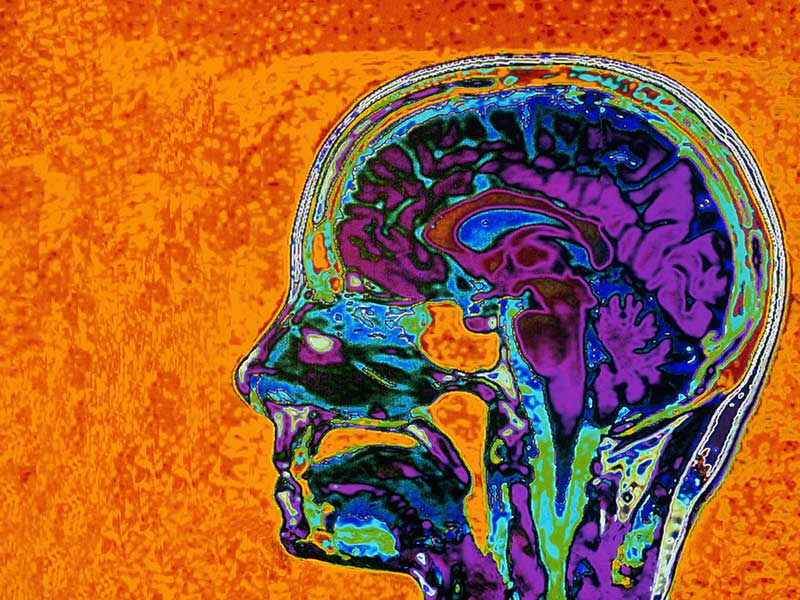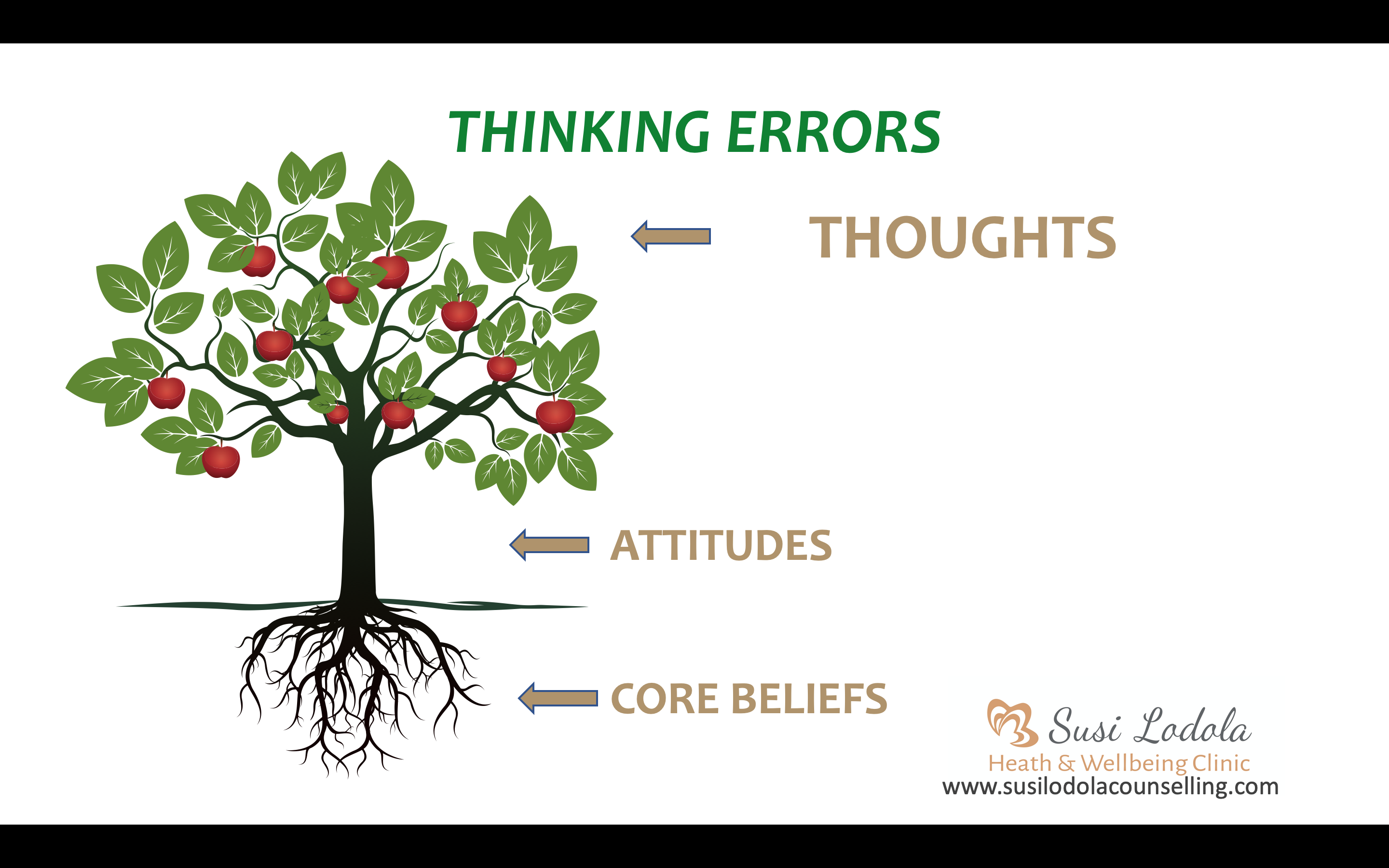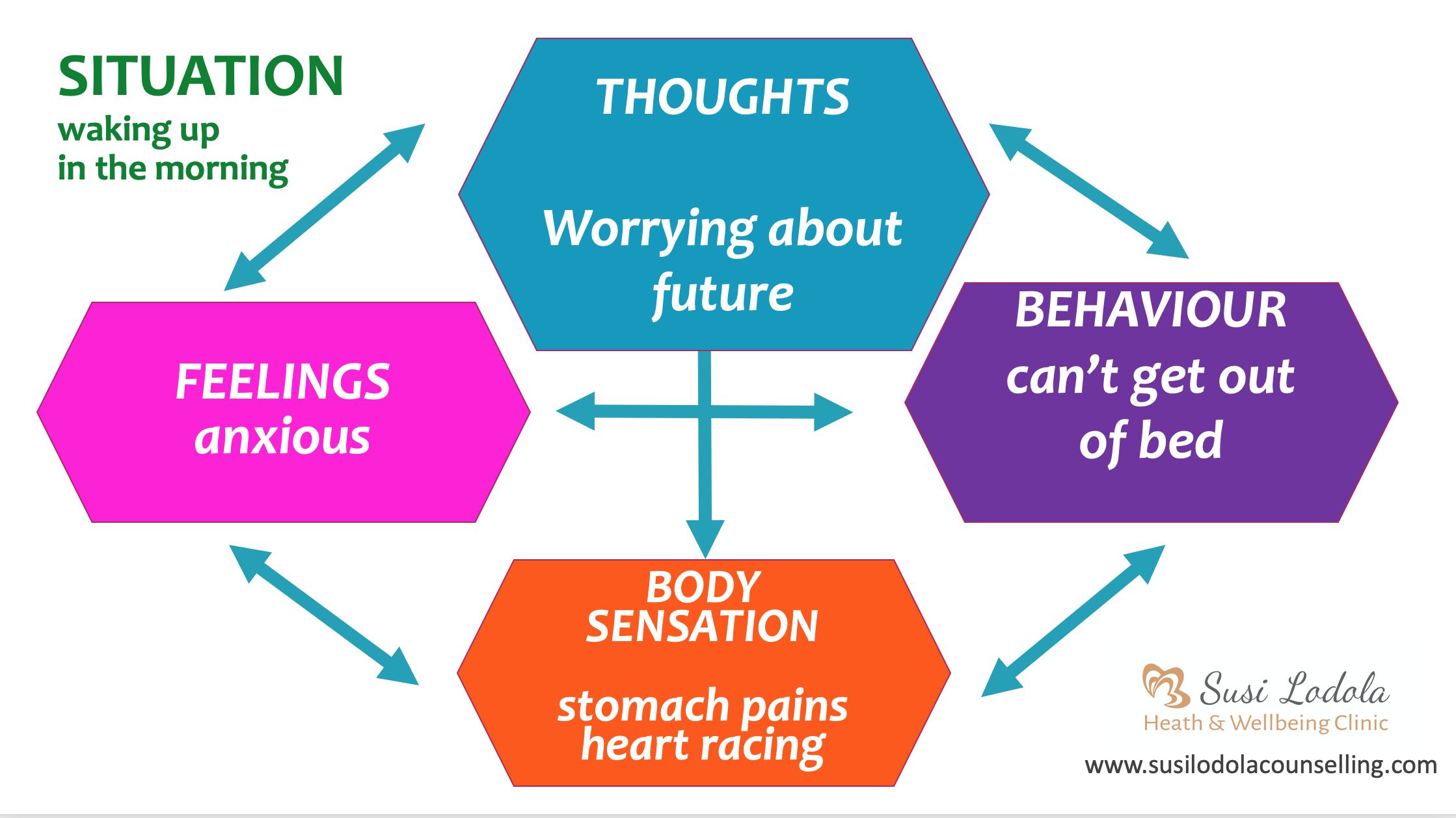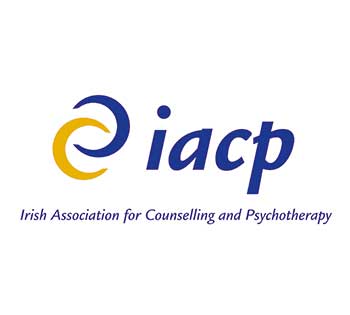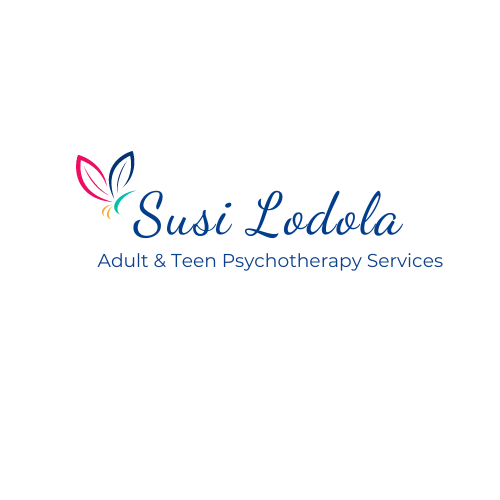Cognitive Behaviour Therapy (CBT ) is an evidence-based psychological method, treating many psychological difficulties, for example, anxiety disorders, depression, self-esteem, weight loss and much more.
During CBT your therapist will help you identify unhelpful thought patterns and uncover conscious and unconscious beliefs and attitudes which you are holding about the way you view the world. Those thoughts and beliefs are linked to experiencing emotional difficulties. In addition, together with your therapist, you will examine your behaviours to see what changes you can make to help you achieve more balance in your life.
Where do unhelpful thought patterns come from?
Unhelpful thought patterns are the result of core beliefs and attitudes we hold. They developed during our formative years through the influence of our families, friends, teachers etc, and our experiences as we grow up.
As you can see in this image of a tree, our core beliefs are the root from which our attitudes and ultimately our thoughts grow out of.
If you had traumatic experiences or difficult circumstances as you grew up, you may have developed negative core beliefs about the world and yourself, which now lead to automatic negative/unhelpful thoughts. Those thoughts form part of the reason why you are experiencing psychological distress.
During therapy, the aim is to help you understand and make changes to your core beliefs, your negative automatic thoughts and your behaviour, which in turn will help you overcome emotional distress and find balance.
The deep-rooted beliefs that shape how we see the world are like a pair of glasses through which we view everything around us. Each person’s glasses have a unique tint influenced by their core beliefs. Positive core beliefs can empower us and promote resilience, while negative ones can hold us back.
CBT allows us to examine these core beliefs and challenge the ones that limit our potential. By understanding and reshaping our beliefs, we can transform our thoughts, feelings, and actions, leading to a more fulfilling and balanced life.
You can see in this diagram how we function as humans. Our thoughts, feelings, behaviours and body sensations are all connected.
Our feelings and body sensations are connected and depend on our interpretation of situations and what we do. In order to make changes to how we feel, we have to uncover our automatic negative thoughts, and unhelpful core beliefs and attitudes. We also have to make changes to what we do, and with the help of your therapist you will work out what actions/behaviours you can take to help you change how you feel. This is a step by step process through which an experienced therapist will guide you.
During therapy, you will also be guided to help you figure out what you most want from life. You will get the skills to change unhelpful thinking and behavior to help you achieve lasting improvement in your mood, a sense of well-being and work towards your goals.
What Does Cognitive Behaviour Therapy look like in practice?
At the beginning of therapy, your therapist will take a history of the difficulties you are facing, make a psychological assessment by asking you to complete questionnaires, and will chat with you about how CBT can help you.
CBT sessions are usually very structured, this helps to use time efficiently and you know what to expect during a session. Your therapist will set an agenda at the beginning of each session, and you decide what issues you would like to bring to the session. The middle part of the sessions is spent problem-solving and working through new skills.
At the end of the session, you will set a new task together for the week and reflect on how the session went for you.
Between sessions, you will be asked to complete various tasks, such as recording your mood and thoughts, or other activities which you have discussed during the sessions to help you achieve your goals.
The amount of sessions you may need varies and often 6 sessions are enough for some people, but on overage it is 10 to 20 sessions.
Generally speaking, CBT is solution-focused and goal-oriented, and you will know when you have reached the end of therapy.
CBT is not suitable for everyone and your therapist will have a chat with you at the beginning of therapy if this approach is suitable for your specific requirement.

